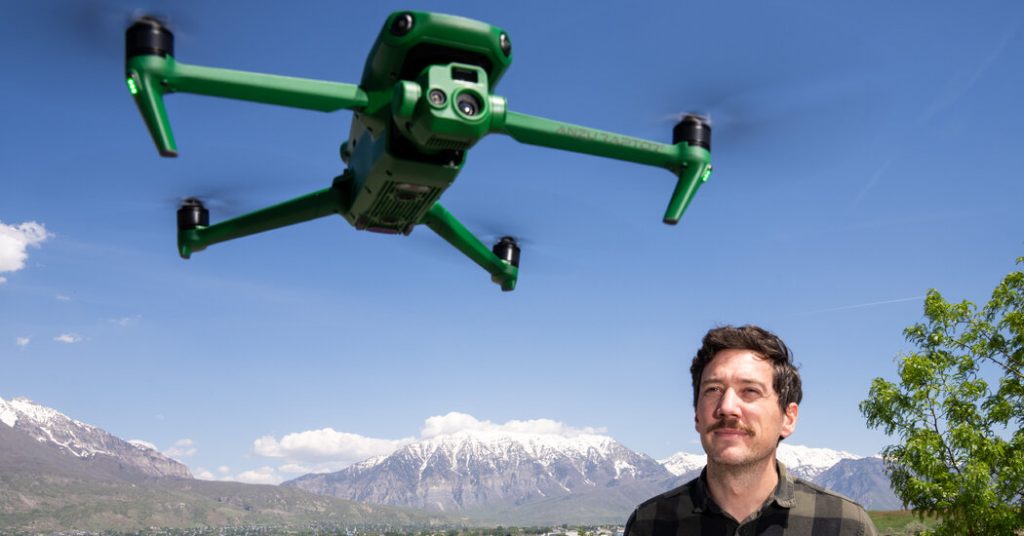Anzu Robotics, a one-man startup based in Texas, has developed drones that are assembled in Malaysia and used by various industries in the United States. However, despite being an American company, Anzu has close ties to China and DJI, the leading Chinese drone maker. Approximately half of Anzu’s parts come from China, and much of its software originated there. Anzu licensed the design for its drones from DJI, which receives a payment for every drone ordered by Anzu’s manufacturer in Malaysia, raising questions about the company’s independence from DJI.
With DJI accounting for 58 percent of commercial drones sold in the United States, the company is facing increased regulatory scrutiny due to concerns about potential Chinese access to information gathered by drones in America. Anzu’s links to DJI serve as a litmus test for Chinese companies navigating the hostile regulatory environment in the U.S. The company’s strategy of shifting manufacturing out of China and distributing its products through a U.S.-based entity may set a precedent for other Chinese companies facing similar challenges in the American market.
In exchange for a commercial license, DJI receives a portion of every dollar that Anzu pays its Malaysian manufacturer for making the drones, indicating that Anzu’s business is essentially DJI’s idea. Despite efforts to modify DJI’s technology to make it suitable for long-term use in the U.S., Anzu is facing pushback from legislators like Representative Elise Stefanik, who seeks to ban DJI drones in America. Despite claims of independence from DJI, Anzu may face regulatory threats due to the increasing suspicion and animosity towards Chinese companies in Washington.
While Anzu’s business model may temporarily succeed, analysts predict that stricter regulations proposed by Congress and regulators may threaten its long-term viability. Despite the creative strategy employed by Anzu, concerns remain about the sustainability of its operations in light of the ongoing crackdown on Chinese companies in the U.S. Some industry veterans admire Anzu’s efforts to provide alternatives to Chinese drones in the current regulatory environment, but the company may face challenges as regulations tighten around Chinese-affiliated entities.
Anzu officially launched in April, receiving equipment approvals from the FCC in Washington. The company has already received thousands of inquiries about its drones and has processed at least 400 orders with the help of third-party brokers in the U.S. Anzu’s parts are sourced from China and Malaysia and assembled in a Malaysian plant before being shipped to the U.S. The company’s technology partners have modified DJI’s flight-control software to ensure user data remains in the U.S. and is secure from unauthorized access.
Amid growing hostility towards Chinese technologies and products in the U.S., Anzu’s complex setup and attempts to distance itself from its Chinese ties reflect the challenges faced by Chinese companies seeking to navigate the American market. The regulatory landscape continues to evolve, with Congress and the Biden administration implementing measures to restrict Chinese technologies and products in the U.S. As Chinese companies look for workarounds and navigate legal and regulatory loopholes, the future of Anzu Robotics and other Chinese entities in the American market remains uncertain.


